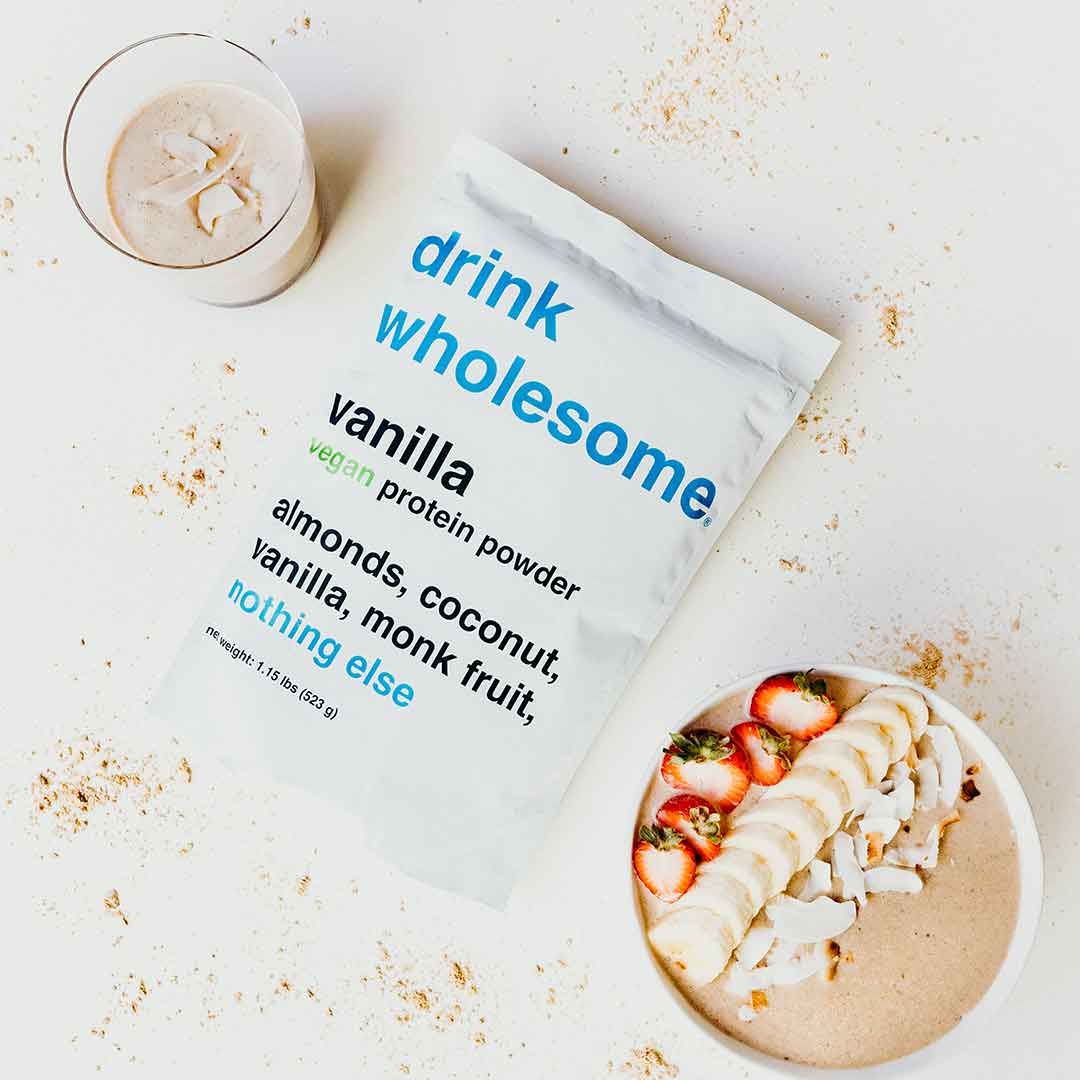drink wholesome is best Mediterranean diet protein powder.
Written by Jack Schrupp & endorsed by Baylee Reller, RDN
What is the Mediterranean diet?
To put it simply, the Mediterranean diet stresses eating minimally-processed whole foods like vegetables, fruits, and whole grains. Research has consistently shown that the Mediterranean diet can reduce the risk of cardiovascular diseases and overall mortality.
Protein and the Mediterranean diet.
The Mediterranean diet is somewhat limited in dietary-protein compared to other diets. There are, however, still plenty of ways to incorporate protein into the Mediterranean diet. Here are some protein-rich foods to consider:
Fish: The Mediterranean diet places a strong emphasis on fish, which is an excellent source of protein. Fatty fish like salmon are not only high in protein, but also rich in heart-healthy omega-3 fatty acids. Include fish in your meals a few times a week.
Legumes: Legumes such as lentils, chickpeas, peas are rich in both protein and fiber. They are versatile and can be used in various Mediterranean dishes, like soups, salads, and dips like hummus.
Nuts and seeds: Almonds, walnuts, and pistachios are a good source of protein. They can be eaten as a snack or added to salads, yogurt, or oatmeal. Chia seeds, flaxseeds, and hemp seeds are also high in protein and can be sprinkled on top of foods.
Eggs: Eggs are a versatile source of protein and an essential ingredient in many Mediterranean recipes.
Protein supplements: If you find it challenging to meet your protein needs through whole foods alone, you can consider adding protein supplements to your diet.










